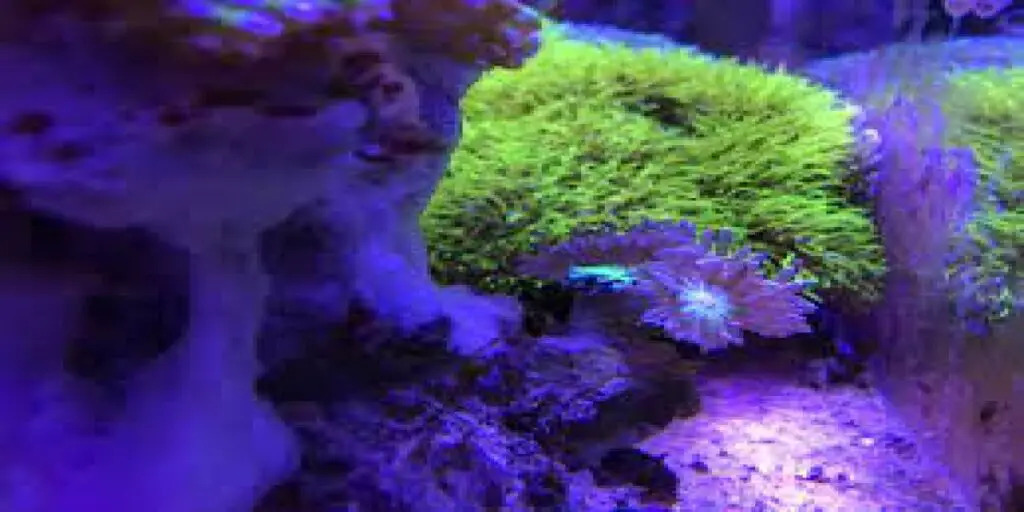Discover the Secrets to Reviving Your duncan Coral Not Happy. Learn Effective Strategies for a Thriving Coral Reef Aquarium.

Duncan corals, known for their stunning appearance, are a popular choice among reef aquarium enthusiasts. However, their care demands attention to detail and a deep understanding of their needs. In this article, we’ll explore the potential problems that can plague Duncan corals and provide valuable insights on how to maintain their happiness and health.
Possible Causes of Duncan Coral Problems
Water Parameters
Water quality is paramount in maintaining healthy Duncan corals. These corals are sensitive to various parameters, including:
- Salinity: Ensure that the salinity levels in your reef tank match the natural seawater range, typically around 35 parts per thousand (ppt).
- Temperature: Keep the water temperature stable within the range of 75-80°F (24-27°C).
- pH: Maintain a stable pH level around 8.2-8.4.
- Alkalinity, Calcium, and Magnesium: Regularly test and adjust these parameters to ensure they fall within appropriate ranges. Alkalinity should be around 8-11 dKH, calcium at 400-450 ppm, and magnesium at 1250-1350 ppm.
Lighting
Proper lighting is crucial for the well-being of Duncan corals. They thrive under moderate to high light conditions. Inadequate lighting can lead to problems such as corals not opening or stunted growth. Use reef-specific LED or T5 lighting systems with adjustable intensity to mimic natural light conditions. Ensure the corals receive adequate light for 8-10 hours a day.
Water Flow
Moderate water flow is essential for Duncan corals. Excessive flow can damage their delicate polyps, while insufficient flow can result in the accumulation of detritus and waste around the coral. Adjust the positioning of powerheads or pumps to create gentle, random flow patterns within your aquarium.
Feeding
Duncan corals are active feeders and require regular nourishment. Provide them with high-quality coral foods containing zooplankton and phytoplankton. Target feeding can be done with a turkey baster or pipette to ensure the food reaches the coral’s polyps. Feed your Duncan corals two to three times a week to maintain their health and vibrant appearance.
Pests and Diseases
Duncan corals are susceptible to various pests and diseases, including flatworms, nudibranchs, and bacterial infections. Regularly inspect your corals for signs of distress, unusual growths, or discoloration. Isolate and treat affected corals promptly to prevent the spread of issues within your reef aquarium.
How to Fix Duncan Coral Problems
If you encounter issues with your Duncan coral, consider the following steps to address the problem:
- Test Your Water Parameters: Regularly check and adjust water parameters to ensure they are within the appropriate ranges for Duncan corals.
- Optimize Lighting and Water Flow: Assess and adjust your aquarium’s lighting and water flow to meet the coral’s requirements.
- Regular Feeding: Increase the frequency of feeding if you suspect your coral is not getting enough nourishment.
- Pest and Disease Control: If you notice any signs of pests or diseases, isolate and treat the affected coral promptly.
If you’re uncertain about the problem or its solution, seek advice from experienced reef aquarists or consult a marine biologist who can provide guidance tailored to your specific situation.
Tips for Keeping Duncan Corals Happy
Maintaining the happiness of your Duncan corals involves consistent care and attention to detail. Here are some valuable tips to ensure their well-being:
- Strategic Placement: Position your Duncan corals in an area of the aquarium where they receive the appropriate lighting and water flow conditions. Avoid placing them too close to aggressive corals that may harm them.
- Regular Feeding: Stick to a feeding schedule, offering high-quality coral foods to meet their nutritional needs.
- Monitor Water Parameters: Continuously monitor and adjust water parameters to maintain stable conditions in your reef tank.
- Pest and Disease Vigilance: Conduct routine inspections to detect and address any signs of pests or diseases promptly.
You May Also Like:
- Fish Gasping At Bottom Of Tank: Causes And Remedies
- Why Did My Glofish Die: Common Causes And Solutions
- Can I Use Purified Water In My Fish Tank: A Comprehensive Guide
Conclusion
While keeping Duncan corals can present challenges, their striking beauty and vibrancy make the effort worthwhile. By understanding and addressing common issues related to water parameters, lighting, water flow, feeding, pests, and diseases, you can provide the ideal environment for your Duncan corals to thrive.